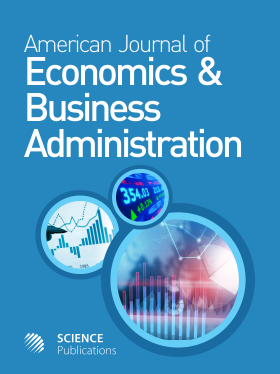Reconciling the Bio Safety Protocol and the WTO Regime: Problems, Perspectives and Possibilities
- 1 National University of Advanced Legal Studies, India
Abstract
Problem statement: The issue of regulation of international trade in Genetically Modified Organisms (GMOs) evokes a very unique, passionate and emotional debate between environmentalists and businesses. At the conceptual level itself, like most other multilateral environmental agreements, the Cartagena Protocol appears to be incompatible with the WTO Rules. Approach: Further, since there is precious little scientific certainty on the actual and potential impact of GMOs on environment and human health, and because the debate spans cultural and philosophical contours, domestic regulation of GMOs vary substantially. The most vocal among such divergences has been the trans-atlantic rift between the US and the European Community regarding the application and interpretation of the precautionary principle. All these negatively hamper international trade and fragment international market, thereby decreasing economies of scale, which in turn is a huge setback to the massive research and development costs involved in the production of GMOs. It is a particularly challenging scenario for developing countries, as it directly affects their exports, even of organic products. Results: The authors strongly believe that the benefits of bio-technology shall not be wholly abandoned without proper scientific evidence; because the evolution of an environmentally safe and risk-free GM product has the potential to become the panacea for global food shortage and inequity. Conclusion/Recommendations: The study will first examine the apparent conflict and tension between the Cartagena Protocol and the WTO regime. Secondly, the language of the savings clause in the Cartagena Protocol would be analyzed, to emphasize that the Protocol was envisaged to be in force with equal primacy to the WTO regime and that WTO rules can be harmoniously interpreted with the Protocol, in a manner that is beneficial to both. Next, it would be elaborated on how the Cartagena Protocol in effect supports and strengthens the existing WTO regime by better defining the precautionary principle. Therefore, through this study, we seek to suggest a possible way forward to sustainable development-by arguing that the Cartagena Protocol and WTO regime are capable of a mutually beneficial existence. In the years to come, such a harmonious interpretation would definitely become crucial for stabilizing and strengthening the international regime governing trade in GMOs.
DOI: https://doi.org/10.3844/ajebasp.2009.236.242

- 4,566 Views
- 3,266 Downloads
- 0 Citations
Download
Keywords
- Cartagena protocol
- WTO
- genetically modified organisms
- GMO
- precautionary principle
